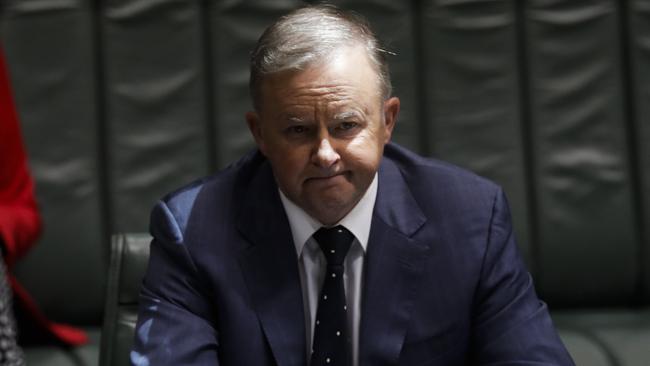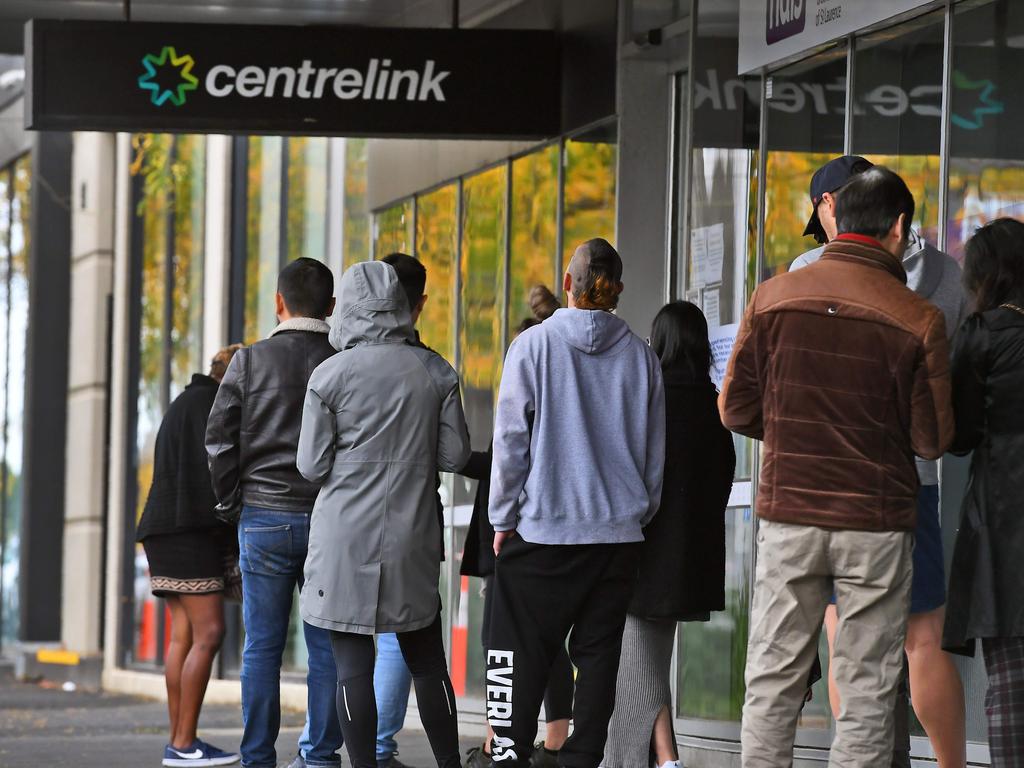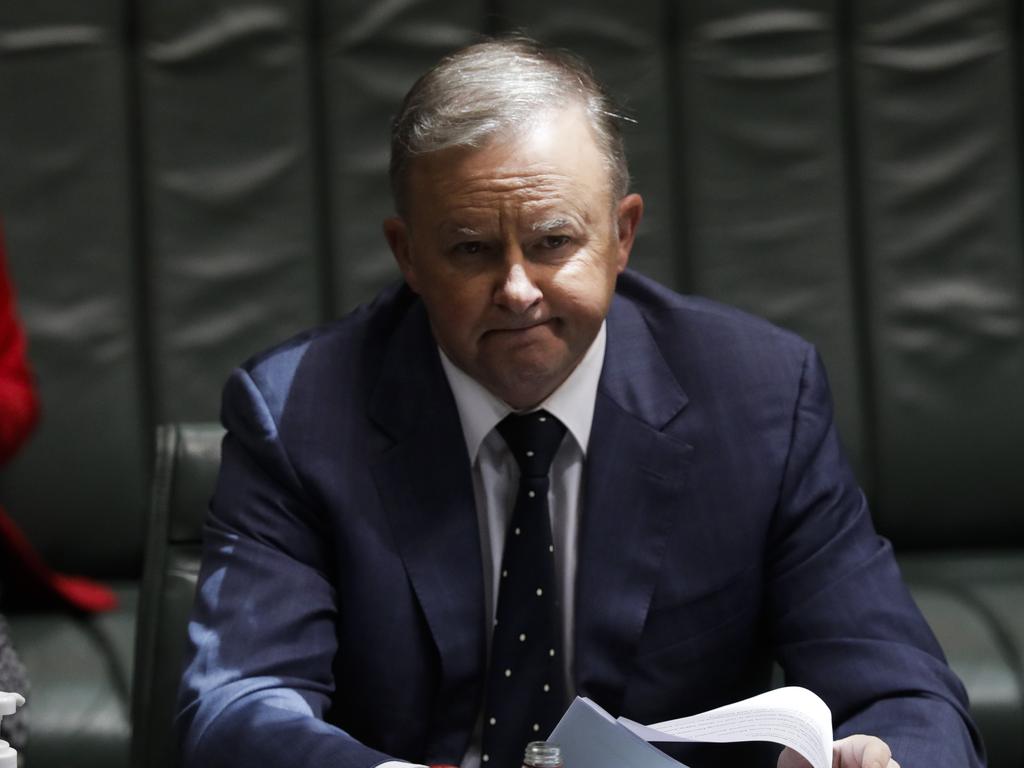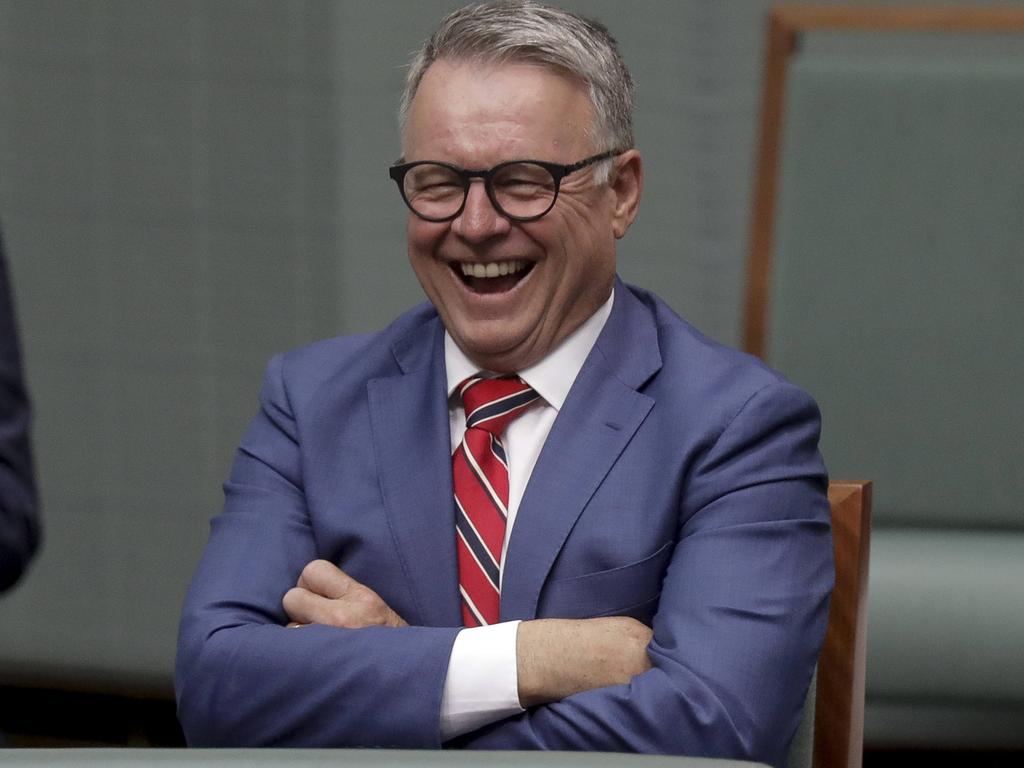If politics were fair, Anthony Albanese would be flying high
Labor will allow Anthony Albanese the summer months to see if he can take some paint off Scott Morrison… It’s an early Christmas present.

Even though the Opposition Leader inherited a shattered party in the wake of an unexpected election defeat, he’s suddenly under pressure. According to the polls, the Labor Party’s primary vote is higher now than it was at the federal election last year, but that fact gets lost. And that’s during a pandemic, when incumbents the world over have remained in favour — with the obvious exception of an incompetent US president who comprehensively mismanaged the virus.
Even though Albanese, not Morrison, shone during the worst bushfires in the nation’s history at the start of the year, Morrison now is hailed as a leader by the mainstream. It was Albanese who showed leadership while the Prime Minister secretly jetted off to Hawaii for a family holiday during a state of emergency in his home state, NSW, but that’s a distant memory as 2020 came to be defined by COVID-19.
Former frontbencher Joel Fitzgibbon resigned from Labor’s shadow cabinet in a blaze of glory, citing failures in climate change policy and taking chunks out of Albanese and climate change spokesman Mark Butler along the way. Even though it’s the government, not the opposition, embarrassing itself on the world stage with its laggard approach to this scientifically settled problem.
Whoever said politics is fair?
Albanese, not Morrison, is under the pump even though Morrison conceived and enacted one of the worst public policy moves in the modern era: robodebt. The failure cost taxpayers $1.2bn, the highest class action settlement in Australian history. Morrison was the social services minister who came up with the idea, the treasurer who used to it bolster the country’s fiscal position and the Prime Minister who relied on illegal robodebt debt notices to gloat about a surplus he never delivered.
We know from the statement of claim that many lives were lost to the scourge of suicide as a direct result of this catastrophic failure. Yet Morrison is enjoying record popularity in the polls.
That prime ministerial popularity is because Australia has handled the coronavirus crisis as well as any nation. Morrison gets the lion’s share of the credit, even though the lion’s share of responsibility for that success goes to premiers who early on insisted on venue restrictions, lockdowns and social distancing as the Prime Minister was spruiking his desire to attend the footy one last time.
Albanese was in lock-step with the premiers but locked out of national cabinet, which became the decision-making forum during the pandemic. It left the federal opposition all at sea as incumbents took their advantage.
Whoever said politics is fair?
So 2020 ends with Morrison dominant and unassailable ahead of the next federal election. At issue is the size of his win, not whether he’ll achieve it. That’s why, despite Albanese’s inner decency, he’s under pressure.
Sitting MPs are starting to get nervous they could lose their seats at the next election, not merely continue to reside on the wrong side of the Treasury benches for at least three more years.
Labor will allow Albanese the summer months to see if he can take some paint off Morrison and the government, courtesy of the industrial relations changes drip-fed to the media this week. It’s an early Christmas present for the Opposition Leader, even though Morrison has already started to walk back from reforms announced less than 24 hours earlier. That’s conviction politics, Morrison style.
If Albanese can’t use the summer months to reaffirm his leadership ahead of the new parliamentary year, which gets under way early, in the first week of February, we will immediately see Albanese, not Morrison, under pressure to retain his job.
Circling behind the Opposition Leader is Tanya Plibersek. None of the right-wing candidates is ready or able to prise the job off Albanese, even if several are willing. Plibersek hails from the Labor Left, just like Albanese. She can split their vote and carry the party membership were a challenge to ensue.
The Right would back her if she commits to toning down some of her more left-leaning ideological predilections, which simply would see her morph away from her youth the same way Albanese already has.
Plibersek has released a book on what Labor should stand for, always a sign of intent. She has let it be known recently that she has a surprisingly good relationship with conservative commentators such as Alan Jones, again one of the moves prospective Labor leaders like to make before they strike. Done the right way, she just may wrong-foot Morrison: does he bark loudly at the new Labor leader or does she curb his enthusiasm?
But Plibersek doesn’t want to strike against Albanese, thereby risking her reputation right from the outset. As unfair as this may be, when men strike it’s the price of politics. When women do it, as Julia Gillard found out, they come in for extra special condemnation. Make no mistake, Morrison is the sort of political attack dog who would ratchet up that sort of narrative.
Plibersek wants to take over late and to do so with some degree of collegiality to ensure bad blood is kept to a minimum. That may be difficult, given how toxic her relationship with Albanese has become in recent years.
Were Plibersek able to time her run and take over a matter of months out from an election — assuming Albanese’s run of bad luck continues — she’d be looking to strike the same tone Jacinda Ardern did when she took the reins of a shattered Labour Party in New Zealand right before an election, only to defeat the Conservatives and go on to become one of the world’s most popular political leaders.
But Morrison controls the timing of the next election. He may have ruled out an early election towards the end of next year, but that commitment is as meaningless as any other this Prime Minister makes. If going early means fighting Albanese, not Plibersek, that will be Morrison’s play. And he’ll be urged to do just that by the brains behind last year’s election win, federal Liberal Party director Andrew Hirst.
Whoever said politics was fair?
Peter van Onselen is a professor of politics and public policy at the University of Western Australia and Griffith University.








Whoever said politics is fair? The parliamentary year wrapped up this week with Anthony Albanese, not Scott Morrison, as the major party leader under pressure. That’s notwithstanding proposed industrial relations reforms opening up the Coalition to a Labor and union-led scare campaign this week.